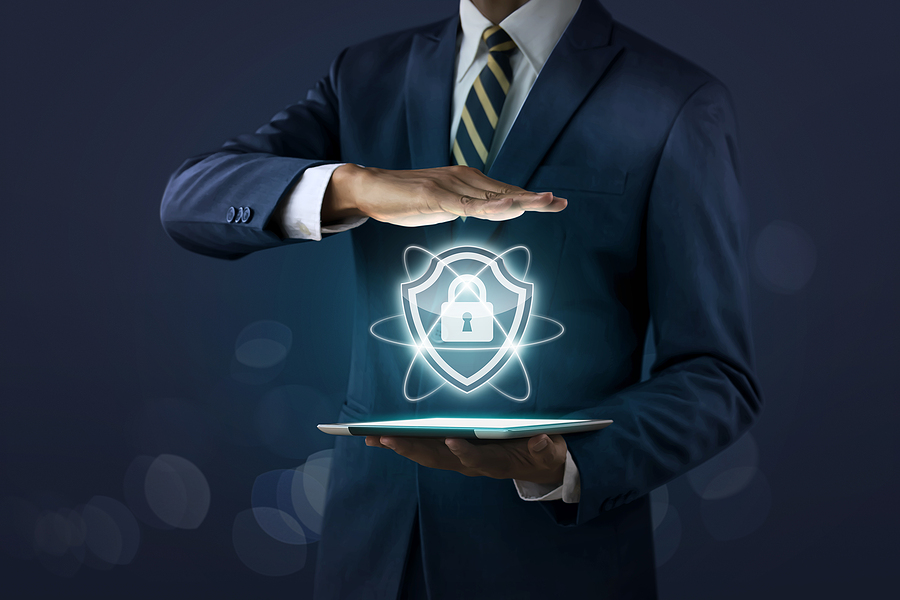You are probably already aware that your cloud ERP software system has great security features. If you had to explain them to someone, would you be able to convey to a colleague why these features are so impressive? Many people would find that task very challenging. While you may not be called on to explain your ERP software’s security features on the spot anytime soon, wouldn’t it give you peace of mind if you were familiar with them?
Information Security Spending on the Rise
Despite increasing awareness of data and security issues, companies worldwide increased their spending on security services, according to a 2020 Gartner report. The research firm reported that companies spent $123.8 billion in 2020 on their data security needs.
Was this money well-spent? According to Microsoft’s annual Digital Defense report, attackers are getting much more sophisticated in how they go after businesses. Some have launched new software aimed at finding vulnerabilities in websites. Still others have found devious methods of issuing ransomware and stealing credentials to access systems.
This shouldn’t come as a surprise to anyone. Criminals have long adapted to any changes the police make in their surveillance and forensic detection. Digital criminals are no different. They adapt, change, and develop along with the security. The goal is to always be one step ahead of them to protect valuable systems and the information they contain.
Four Reasons Why a Cloud ERP Software System Provides Excellent Security
Cloud ERP software systems are often touted for their ability to provide good security. But why do they offer better security than on-premises systems?
- Physical Security for Sensitive Systems
Many companies are unaware that digital security includes the physical security of their hardware and mainframes. Consider where your company’s digital infrastructure resides. If you have on-premises systems now, where are the mainframes powering all of the computers in the office? Chances are good it’s tucked away in a closet somewhere, protected by an old-fashioned lock and key—or, if you’re lucky—a digital lock on the door.
Some office buildings have good front-door security and sharp-eyed personnel at the desk noting who comes into the building and who leaves. And, although they know who belongs in the building and learn to recognize people from their daily interactions, there are still strangers with legitimate business reasons to go into the office: workmen, temps, clients, customers, or even people interviewing for jobs. Among those visitors, just one may be scoping out things to steal or information to sell to supplement their income.
Theft isn’t the only threat to the physical security of your computer systems. Companies with presences in hurricane and tornado-prone parts of the country also know the devastation that storms can wreak on computers. Floods from hurricanes or rising sea water, destroyed buildings, and waterlogged systems can also be a security threat to a company.
Cloud systems are maintained on servers stored in multiple locations around the country. These servers are guarded against common intrusions such as the example of workmen coming into an office place who aren’t well-known to the company. Many servers used for cloud computers are also backed up in a separate physical facility, too, so if one is hit by a hurricane, another location remains dry and secure.
- People and Training
You’ve probably held some type of digital security training for your staff. Maybe you’ve hired a consultant to come in and do a one-day seminar on digital security, or your IT department requires users to change their passwords monthly. These are all great first steps at shoring up your company’s digital security.
Cloud ERP service providers often have teams of dedicated digital security specialists working around the clock to prevent attacks on their customers’ data. They know that one breach is enough to lose the trust of their clients, so they do all they can to prevent against such an attack. The result is a system with the most sophisticated digital security available.
- Reliable Access
Ransomware is on the rise, with one expected every 11 seconds in 2021. The global costs of these “spray and pray” attacks is expected to be $20 billion. Phishing emails are the source of most ransomware attacks, and while these emails are often easy to spot, just one mistake can be costly.
As the name implies, ransomware holds a system, computer, or its data “hostage” for ransom. Often the malware locks a system so it cannot be accessed. Criminals ask the victim to pay a fee, sometimes in bitcoin or via a debit card, to receive the digital key for unlocking the system. If paid, there’s no guarantee the criminal will even send the key.
Cloud ERP software systems offer reliable, secure access to data. It isn’t dependent upon one computer. If one computer gets infected, cloud system users can log into their data from another uninfected unit. The result is reliable access to data, no matter what happens on-site.
- Data Continuity
Along with security of the physical system managing all of your data comes the peace of mind from data backups and continuity. Cloud ERP software systems may back data up more frequently than companies do, offering additional data continuity, no matter what happens to the company’s systems. Data uploads are in real-time, or often close to it, so the data flowing in your company today is stored and backed up on servers miles away from your business. The result is unparalleled data continuity.
ASI has been working with businesses and providing the services they need to solve their most challenging issues for more than three decades. We can provide an accounting solution tailored to your specific needs in a cost-effective way. Contact us today for your free accounting and ERP software consultation.

